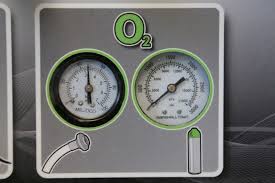Ventilator rush: UK says new ones will be approved next week

London: Britain said on Friday that engineering companies had come up with an emergency ventilator prototype to treat coronavirus patients that could be approved next week, though one industry source told Reuters full production was several weeks away.
Britain, where 145 people with COVID-19 have died so far, has a shortage of ventilators which can save the lives of those who develop complications after contracting the virus. The UK’s existing stock of around 5,000-8,000 ventilators is inadequate.
Given such an acute shortage in a country with a population of 67 million, the government scrambled to ask top engineering companies to retool their production to make ventilators.
“More than half a dozen companies have already made one in prototype, to check with us that we are happy with the quality,” health minister Matt Hancock said.
Hancock said he hoped the new ventilators would be approved for use in hospitals by the end of next week.
“I would be surprised if it was longer than then,” he said. “We need as many as you can possibly make and we will buy them.”
A source familiar with the manufacturing situation told Reuters that the prototype would be available next week with manufacturing to start in 4 weeks time. Other industry sources told Reuters that they were ready to act but that they needed more details from government on what was expected from them.
British companies have formed three teams, led by aerospace engineer Meggitt and carmakers McLaren and Nissan to pursue the rapid production of ventilators. European planemaker Airbus has offered help with 3D technology and facilities if other companies need it.
“When needs must, we can perform and I’m sure the same would be true for ventilators … if we were given the right brief and opportunity to do so,” Bentley boss Adrian Hallmark told Reuters.
Britain faces a “massive shortage” of ventilators that will be needed to treat critically ill patients suffering from coronavirus, after it failed to invest enough in intensive care equipment, a leading ventilator manufacturer said.
Estimates of the potential death toll in the United Kingdom range from a around 20,000 to over 250,000 or even more. As of March 19, 64,621 people have been tested in the UK, of which 61,352 were confirmed negative and 3,269 were confirmed positive.
Britain casts its National Health Service, which offers healthcare free at the point of use for everyone from cradle to grave, as one of its greatest national achievements. But many doctors say it should be better funded and managed.
Britain has asked 65,000 former nurses and doctors to return to work and will deploy final-year medical students and student nurses to fight the coronavirus health crisis, the health ministry said.
“We can’t do it alone, so I am urging all recent former nurses to lend us your expertise and experience during this pandemic, because I have no doubt that you can help to save lives,” said Ruth May, chief nursing officer for England.
The Nursing and Midwifery Council is writing out to more than 50,000 nurses whose registration has lapsed in the last three years. The General Medical Council will write to another 15,500 doctors who have left the register since 2017.
Britain’s health service is freeing up 30,000 beds by postponing non-urgent operations and providing care in the community for those who are fit to be discharged, and finding up to 10,000 in independent and community hospitals, the health service said.
Hancock also said 150 trucks were being sent to 150 hospitals, about half of all those in the country, to provide more protective equipment such as masks and hand sanitiser.





